In the past years several examples highlighted how universities and research institutions can complement Missing Maps’ work. Here we want to share some lessons learned and dig into the things that can be done beyond organizing mapathons.
One of the key issues when collaborating with humanitarian organizations is that researchers tend not to be able to give quick answers while on the humanitarian side there are pressing priorities. As such, the timeline of research projects are often much more prolonged and need upfront time investment from humanitarian organizations without clarity of return benefits. However, we believe that there are several ways we can overcome this contradiction.
In short, the recommendations are “simple”, but nicely underline the core principles of Missing Maps: be open, communicate, share, exchange.
As a researcher you should try to put on a perspective which goes beyond your traditional research community. Joining a local mapathon is often a good opportunity to get to know interesting people, who are already involved in OpenStreetMap (OSM). In such a situation it is often appropriate to listen and observe. Put yourself in the role of a student, you are the one that learns from the community.
There are some great examples where this has inspired researchers to “find” the questions which really mattered to a wider group of people beyond your own research field. The work of Martin Dittus about community engagement in HOT and Missing Maps is an extraordinary example for such a mutual collaboration. For an insight into the fantastic variety of research topics, this panel discussion with YouthMappers Research Fellows will give you a sense of the broad possibilities with OpenStreetMap data.
It is a privilege to be able to share your knowledge and skills with students and other interested people. Our experience shows that many students are interested in things that matter and can have an impact on society. Offering courses and seminars about OSM, humanitarian mapping and data analysis which consider the perspective of humanitarian organizations and local communities are a great way to motivate your students and teach them useful skills at the same time.
Heidelberg University runs a course in close collaboration with the German Red Cross called ‘GIS in anticipatory humanitarian action’. Whereas this is the result of a long-term engagement within the Missing Maps community, there are already very simple ways to get things started.
When offering a course you can consider inviting someone from a humanitarian organization to give a short (virtual - example) presentation about their work and the challenges they face. This can be really low level and could be as short as a five minute presentation followed by a fifteen minute discussion session. By inviting such experts to the class your students will get to know real-world examples and this might inspire them for their bachelor or masters theses.
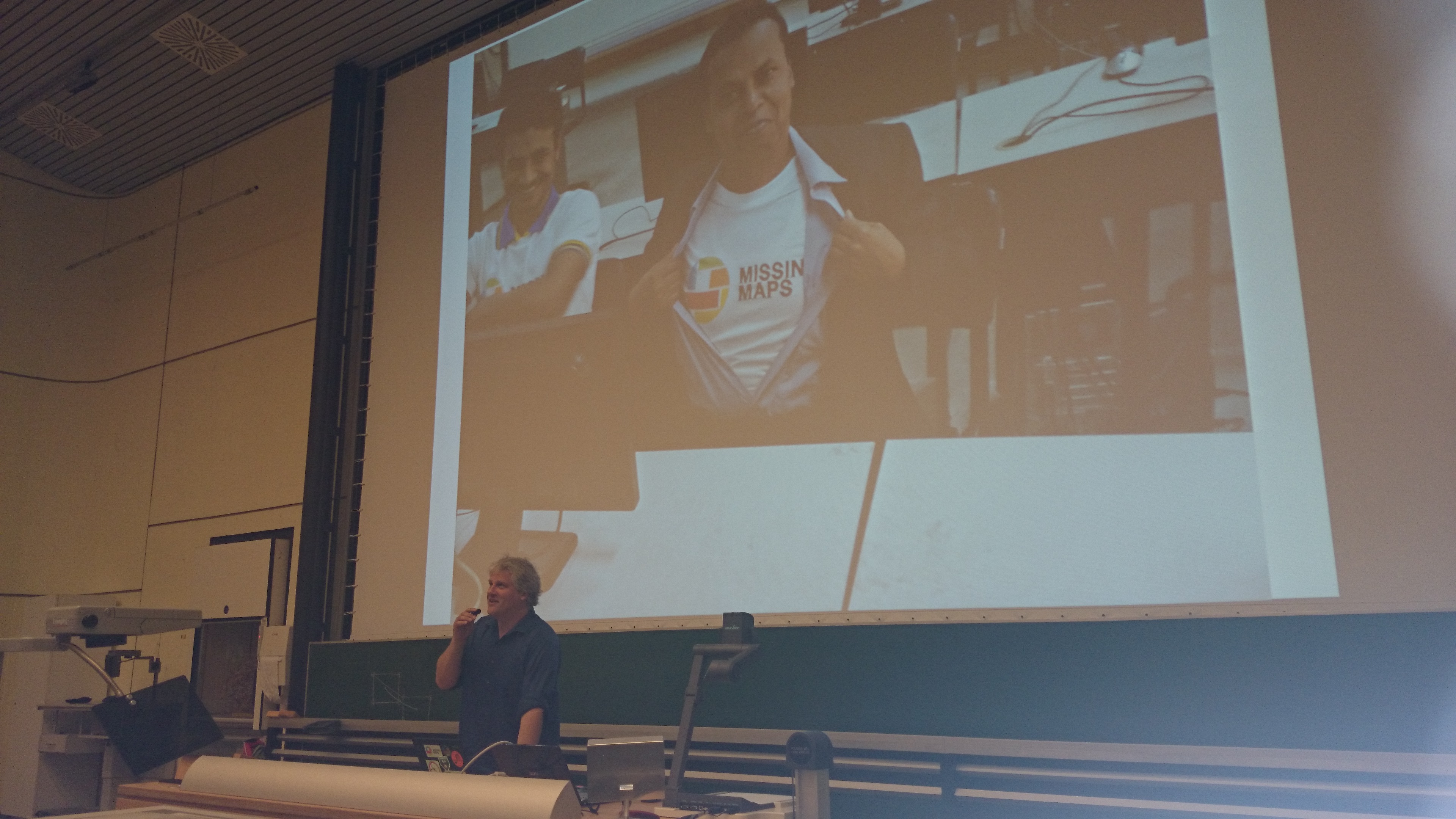
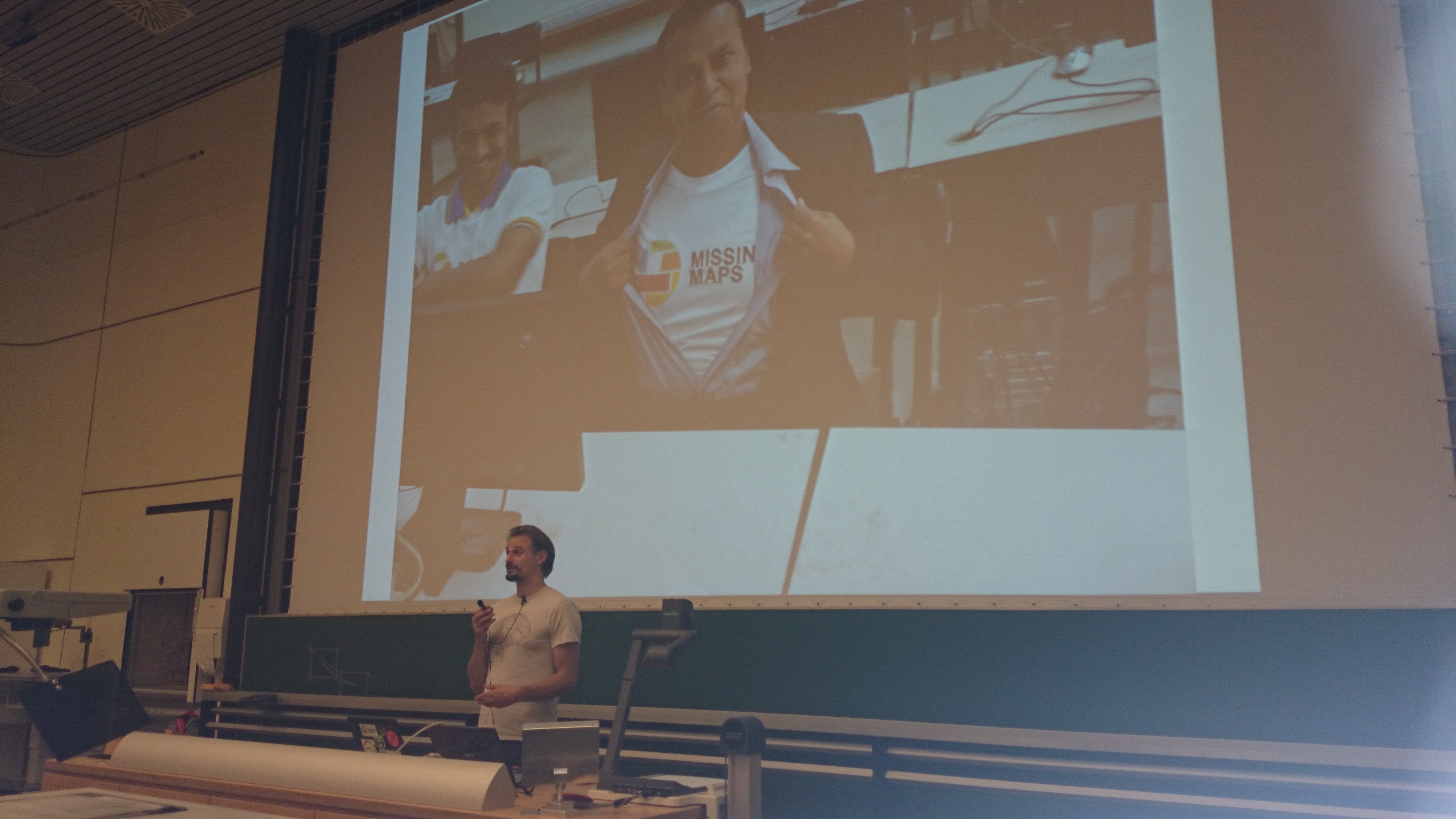
Ivan Gayton & Pete Masters presenting at Heidelberg University
YouthMappers has collected many different resources, including sample syllabi and reading material for courses on humanitarian mapping and disaster risk reduction which can help universities to enhance their curriculum.
When doing research with and about Missing Maps or mapping in general you should make sure that your research results are accessible. Sharing your results back (beyond your research community) is really important and can enable humanitarian organizations or local communities to learn from, and potentially build upon, your findings.
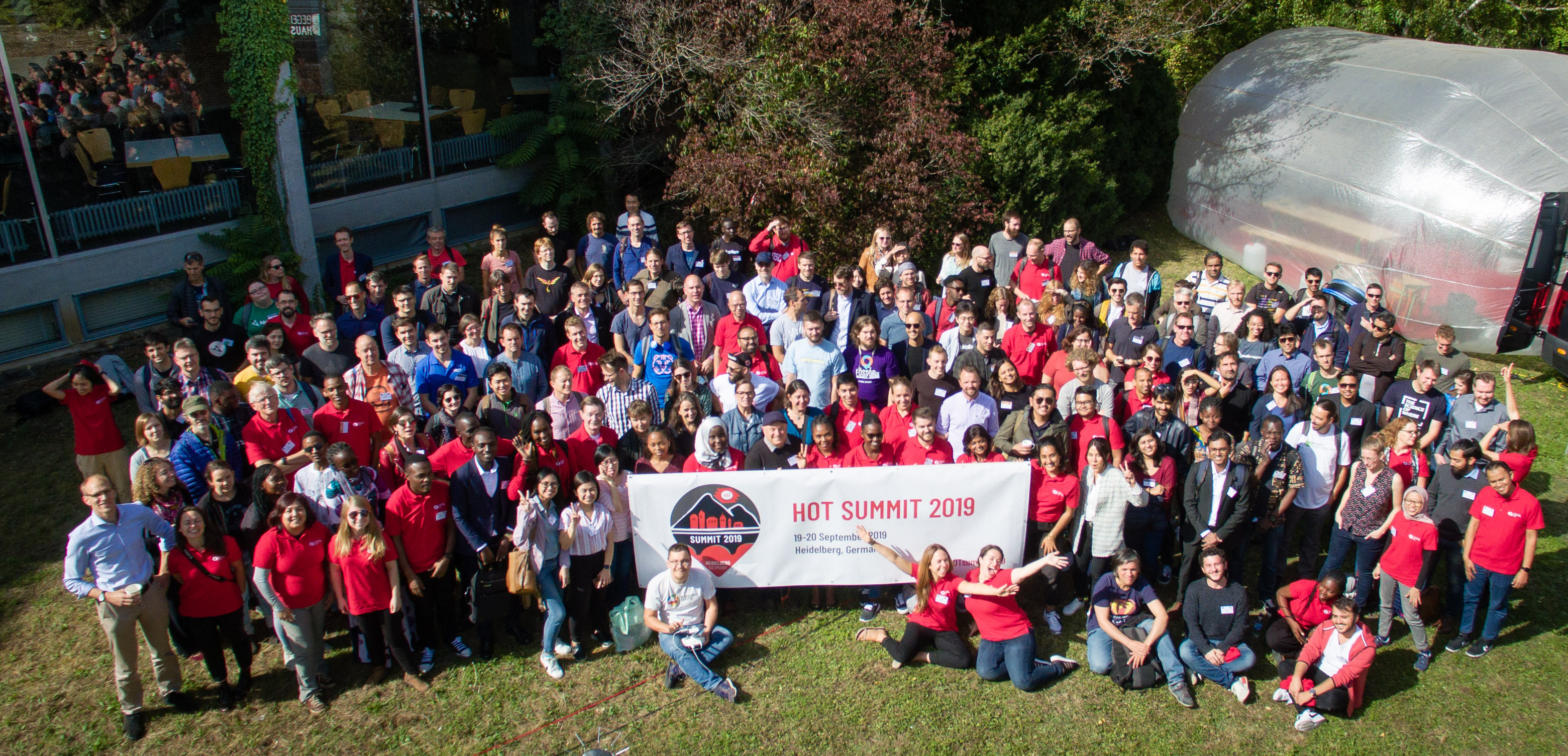
HOT Summit 2019
To facilitate this you should consider putting a bit of extra energy into how you communicate your results. Sharing your research paper alone is clearly not enough here. Try to write a blog post which summarizes in an easy language what you found out. On the YouthMappers blog you will also find many interesting examples.
Presenting your work at the State of the Map conference or another event is a good way to share your work with a wider audience. Here’s a recording of a talk at SotM 2020 which investigated the evolution of humanitarian mapping within the OSM community.
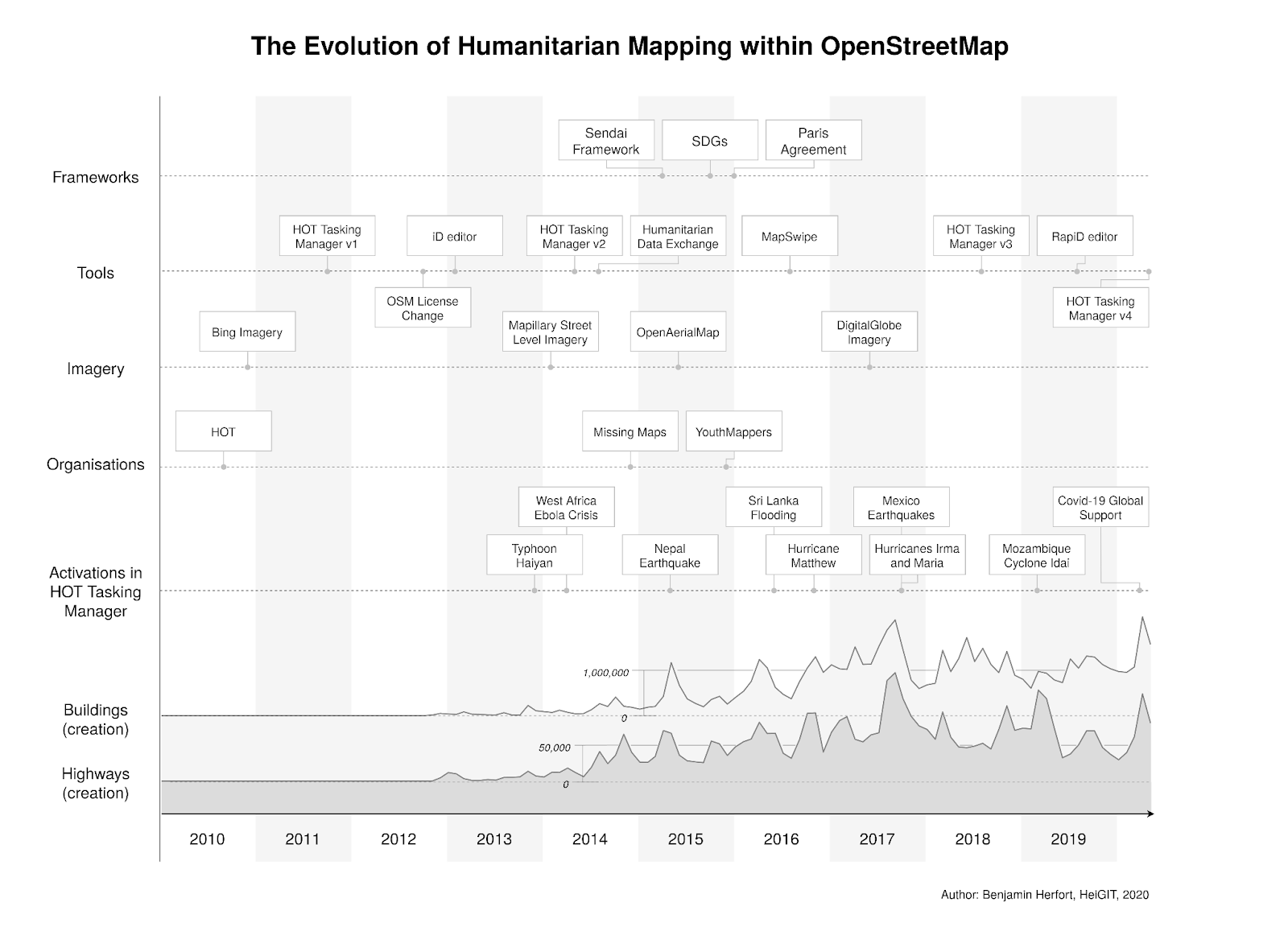
Figure from paper - The evolution of humanitarian mapping within the OpenStreetMap community
If you are stressed by the notion of preparing a twenty minute presentation, consider something more lightweight such as a Q&A session, poster or pitch at a birds-of-a-feather session. For the SotM 2019 YouthMappers created a poster which shows how the motivation and performance of new mappers is impacted by contextual information provided about the purpose of a humanitarian mapping task.
Monthly Crowd2Map Tanzania webinars have included presentations from university groups and lecturers about what they have been doing.
Be open! Share challenges you are facing in your work, but also share ideas and concepts that you anticipate becoming more important in the future. The earlier you share your challenges the more likely your problems will be solved ahead of time by timely and relevant research. It also leaves sufficient time for researchers to contact you and discuss their approach before they embark on their research.
If your research demands are more urgent, then consider allocating financial resources to solve them - and don’t hesitate to pay a university researcher if it falls within their areas of expertise!
HOT has put out a list of challenges and potential research topics on the OSM Wiki. Lists like this are very helpful to university researchers because they can easily be shared and discussed. Otherwise, consider sharing your challenges with the OpenStreetMap community channel.
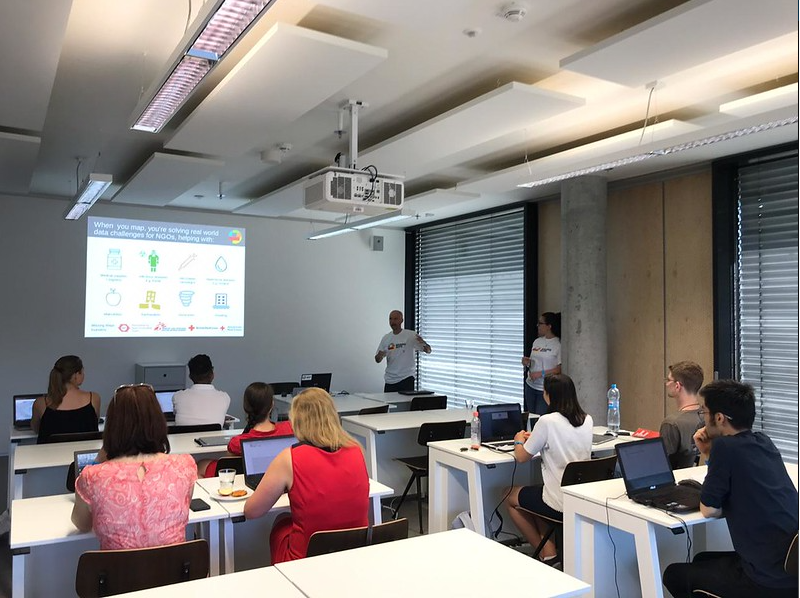
Missing Maps training Prague MSF
Researchers do not necessarily solve problems with practical solutions, they often just find more problems! Research involves testing something new. Therefore, it may not work out as expected, but if you’re lucky something very interesting may emerge.
It is important that you set clear expectations, be demanding. Tell the researcher that you expect them to share the practical value of their results and present findings. Don’t assume they will know to share this otherwise. If there is a chance to expose their research at an event, support them to speak at it. The key is to broaden the researcher’s outlook beyond their limited research community. A researcher will really appreciate knowing that someone cares about their results and that they could have an impact.
For example, Anna Lee-Steele sharing her research at a HOT Summit event: Crisis Maps, Community, and Corporations (an Anthropologist’s perspective)
We want to close this blog post with a short list of resources we hope will be useful for you: